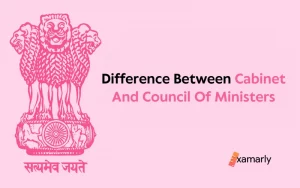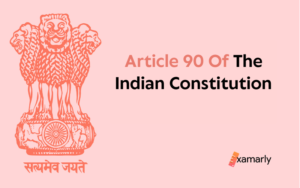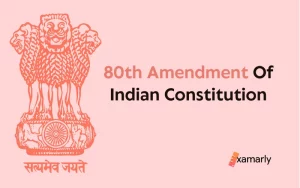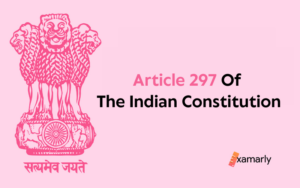Article 316 of the Indian Constitution pertains to the appointment of chairpersons and members of State Public Service Commissions.
According to this article, the chairpersons and members of State Public Service Commissions are appointed by the Governor of a state in consultation with the Chief Minister of the state and the Speaker of the state Legislative Assembly, or, if the state has a Legislative Council, in consultation with the Chief Minister and the Chairman of the Legislative Council.
The chairperson and other members of a State Public Service Commission are appointed for a term of six years, or until they attain the age of 65 years, whichever is earlier.
The chairperson and other members of a State Public Service Commission can only be removed from office on the grounds of misbehaviour or incapacity, in accordance with the procedure laid down in the Constitution.
Let us delve deep into Article 316 of the Indian Constitution to have a better understanding of what is being said and done.
- Article 316 Of The Indian Constitution – In Detail
- Clause 1 – As it is & Explained
- Clause 1A – As it is & Explained
- Clause 2 – As it is & Explained
- Clause 3 – As it is & Explained
- Summing Up
- FAQs on Article 316 Of The Indian Constitution
- What exactly is a Public Service Commission?
- In what ways does a Public Services Commission serve the public?
- Who decides who gets to serve on a Public Services Commission?
- When it comes to hiring government employees, what part does a Public Services Commission play?
- Can government employees be punished by the Public Service Commission?
Article 316 Of The Indian Constitution – In Detail
We will break down each and every clause present in Article 316 of the Indian Constitution to have an in-depth understanding of them.
Clause 1 – As it is & Explained
(1) The Chairman and other members of a Public Service Commission shall be appointed, in the case of the Union Commission or a Joint Commission, by the President, and in the case of a State Commission, by the Governor of the State: Provided that as nearly as may be one half of the members of every Public Service Commission shall be persons who at the dates of their respective appointments have held office for at least ten years either under the Government of India or under the Government of a State, and in computing the said period of ten years any period before the commencement of this Constitution during which a person has held office under the Crown in India or under the Government of an Indian State shall be included
The first clause of Article 316 of the Indian Constitution says that the Chairman and other members of a Public Service Commission are appointed by the President for Union Commissions and Joint Commissions, and by the Governor for State Commissions:
It also says that provided that about half of each Public Service Commission’s members must have worked for the Indian government or a state government for at least ten years at the time of their appointments.
Any time a person worked for the Crown in India or for an Indian state government before this Constitution took effect will count toward the ten-year minimum.
Clause 1A – As it is & Explained
(1A) If the office of the Chairman of the Commission becomes vacant or if any such Chairman is by reason of absence or for any other reason unable to perform the duties of his office, those duties shall, until some persons appointed under clause ( 1 ) to the vacant office has entered on the duties thereof or, as the case may be, until the Chairman has resumed his duties, be performed by such one of the other members of the Commission as the President, in the case of the Union Commission or a Joint Commission, and the Governor of the State in the case of a State in the case of a State Commission, may appoint for the purpose
According to the second clause of Article 316 of the Indian Constitution, “At the dates of their respective appointments, at least one half of the members of every Public Service Commission shall be persons who have held office for at least ten years either under the Government of India or under the Government of a State; and in computing the said period of ten years, any period before the commencement of this Constitution during which a person has held office under the Crown in India or under the Government of an Indian State shall be included.”
Clause 2 – As it is & Explained
(2) A member of a Public Service Commission shall hold office for a term of six years from the date on which he enters upon his office or until he attains, in the case of the Union Commission, the age of sixty five years, and in the case of a State Commission or a Joint Commission, the age of sixty two years, whichever is earlier: Provided that
(a) a member of a Public Service Commission may, by writing under his hand addressed, in the case of the Union Commission or a Joint Commission, to the President, and in the case of a State Commission, to the Governor of the State, resign his office;
(b) a member of a Public Service Commission may be removed from his office in the manner provided in clause ( 1 ) or clause ( 3 ) of Article 317
The second clause of Article 316 of the Indian Constitution says that aPublic Service Commission member’s term of office shall be six years from the date on which he enters upon his office, or until he attains the age of sixty-five in the case of the Union Commission, or sixty-two in the case of the State Commission or the Joint Commission: Provided, That a member of the Union Commission may not serve beyond the age of sixty-five.
(a) a member of a Public Service Commission may resign from his position by submitting a written resignation to the appropriate Governor of his State or the President in the case of a Union or Joint Commission;
(b) a Public Service Commission member is subject to removal in accordance with paragraphs (1) or (3) of Article 317.
Clause 3 – As it is & Explained
(3) A person who holds office as a member of a Public Service Commission shall, on the expiration of his term of office, be ineligible for re appointment to that office
According to the third clause of Article 316 of the Indian Constitution, at the conclusion of his term of office, a member of a Public Service Commission may not be reappointment to the same position.
You Might Also Like To Read – Article 317 Of The Indian Constitution
Summing Up
We can conclude from Article 316 of the Indian Constitution that it pertains to the appointment and term of office of members of Public Service Commissions.
According to this article, the Chairman and other members of a Public Service Commission (which includes the Union Commission, State Commission, and Joint Commission) are appointed by the President of India in the case of the Union Commission or Joint Commission, and by the Governor of the state in the case of a State Commission.
The appointment of the Chairman and members of a Public Service Commission must be such that at least half of the members have held office for at least 10 years either under the government of India or a state government.
A member of a Public Service Commission holds office for a term of six years or until they reach the age of 65 (in the case of the Union Commission) or 62 (in the case of a State Commission or Joint Commission), whichever is earlier.
A member of a Public Service Commission may resign their office by submitting a written request to the President or Governor, as appropriate, and may be removed from office in the manner provided in Article 317.
FAQs on Article 316 Of The Indian Constitution
Some common FAQs regarding PSCs are addressed below.
What exactly is a Public Service Commission?
In many countries, a Public Services Commission (PSC) is an administrative body established by the government to manage the selection, advancement, and punishment of government employees. The PSC is in charge of establishing and enforcing uniform rules for the selection, advancement, and discipline of government employees.
In what ways does a Public Services Commission serve the public?
Depending on the political structure of a country, a Public Services Commission’s precise duties may differ. In most cases, PSCs are accountable for the following:
Establishing norms and practises for civil servants’ selection, advancement, and punishment
Adhering to a meritocratic hiring and promotion system in the public sector
Serving as a sounding board for policy decisions involving the public sector
Investigating the actions of public officials
Appointing, promoting, and disciplining people as recommended by the government
Who decides who gets to serve on a Public Services Commission?
Members of a Public Services Commission may be appointed in a variety of ways, some of which may be country-specific. PSC members may be appointed by the government or the head of state in some nations, while in others they may be elected by the legislature or chosen through a selection process. Members of the PSC can be chosen from among active or retired government employees, or they can come from the general public.
When it comes to hiring government employees, what part does a Public Services Commission play?
The PSC is in charge of coordinating the hiring process for government employees. Typical steps in this process include creating recruitment policies and procedures, publishing job postings, receiving and reviewing applications, and holding interviews and other forms of evaluation. In addition to providing advice to the government on appointments and promotions, the PSC may have final say over such matters.
Can government employees be punished by the Public Service Commission?
In certain cases, PSCs do have the power to discipline government employees. Reprimands, promotions, and firings are all potential consequences. Disciplinary measures taken against public servants may differ from one nation to another, as can the specific rules and regulations governing public service.






